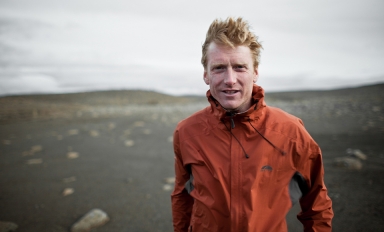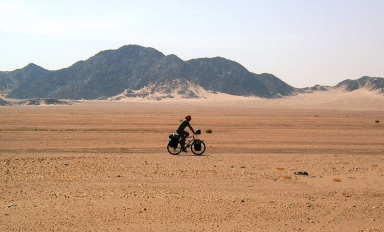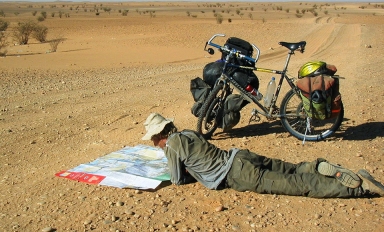Alastair Humphreys has been an adventurer, blogger, author and speaker ever since he took the biggest of steps – setting off to ride around the world. Four years, 46,000 miles and 60 countries later, he arrived back in England, with a greater thirst for adventure. The two books he wrote about his solo journey – Moods of Future Joy (Part 1) and Thunder and Sunshine (Part 2) – are as much inspiring travelogues as cycle touring guides and should be on both budding and experienced bike traveller’s bookshelves…
The world sounded a scary place until I stepped out into it.
I’d seen beautiful photography of extraordinary places and read exotic stories of crazy, bold adventures. But I always assumed that countries like that were for real travellers; dusty, crazy guys with gravel in their gut and more nerve and experience than I would ever have. But all that changed. I set out one summer morning to seek adventure. I don’t know how I summoned up the nerve to begin, but begin I did. I climbed onto my bicycle, pedalled away from my front door, and didn’t stop riding for four years until I arrived back home. I cycled right the way round the world.
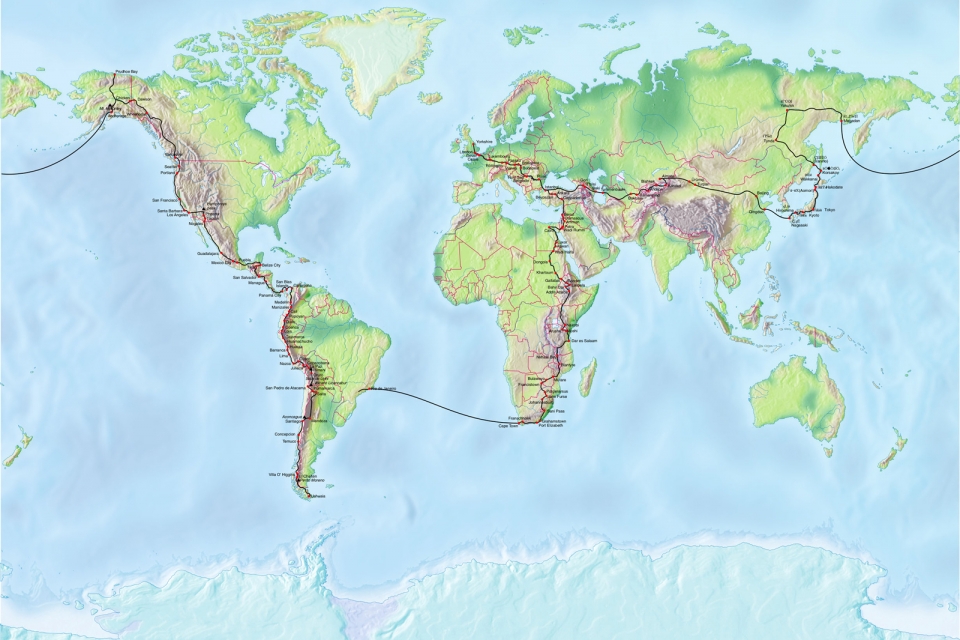
"I set out one summer morning to seek adventure...On and on I rode, meeting new people, seeing beautiful things, learning more than I had ever imagined possible..."
Stepping Out
Adventure changed my life. The only really difficult thing I did was to build up the boldness to begin. Don’t be put off thinking that adventure and travel is only for real travellers or professional adventurers. Step out of your comfort zone and go explore. You will surprise yourself.
Something that has changed tremendously since I decided to cycle round the world is the number of people undertaking long journeys by bike. There are many styles of bicycle travel and at least as many motivations behind them. Many people have discovered bike journeys as an interesting, challenging, cheaper improvement to backpacking. More people are undertaking epic adventures by bike. It is lovely to receive emails from people dreaming of far flung places. I always urge them to commit to action – “Begin!” The hardest part of my journey was having the nerve to start. Everything else was relatively easy after that.
“First Commit. Then Begin. Everything else Follows...”
No experience in my life is likely to match up to the privileged days I spent cycling round the world. It made me realise that I was capable of far more than I had ever imagined.
I over-estimated the physical side of the expedition. Over such long periods of time my body had time to rise to the challenges of whatever fitness levels were required of me. It has been a real thrill to become so fit. To be able to ride 100 miles a day, spending 8 hours in the saddle on a very heavy bike over demanding terrain and to wake the next morning and do it again, and again, and again is a feeling I am very grateful for. We greatly under-estimate our bodies. So many people say to me “I could never ride that far”.
But if I over-estimated the physical aspect, I also under-estimated the mental challenges. Being away from friends and family has helped me to appreciate their true importance. Leaving my girlfriend, Sarah, made the journey so much more difficult and made me question, on innumerable occasions, what on earth I was doing. Being alone for so long (great adventures or not) made me realise that there is even more to life than seeing spectacular places, being carefree and wild, facing fresh challenges and new experiences. I realised that what I really want to do is to share these things with somebody else.
Putting the world to rights is one of the great privileges of the solo cyclist with too much time and silence on his hands. I would make everybody ride a bike for 6 months through the country of the people they think they hate and have insoluble differences with.
That would cure them.
Stef: If you could choose a couple of 2-4 week sections of your 4 year journey to ride again, what would they be?
Al: Easy and lovely – the Danube cycle path. Easy and lovely – the coastal road of northern California. Hard and lovely – Carreterra Austral, Patagonia. Hard and mentally/emotionally challenging – Ethiopian Highlands.
____________
Stef: You rode with other friends for small sections of your Round the World (RTW) cycle. With hindsight, would you set off again on your own?
Al: Absolutely. I am really glad that I did the majority of the trip by myself. But I also loved having company for chunks of the trip. Travelling solo or with a friend are two entirely different experiences.
____________
Stef: You experienced some tough conditions – the cold in Siberia, the winds in Patagonia and the relentless heat. What conditions challenged your cycling the most?
Al: Headwinds! No question they are the most frustrating conditions to deal with. Ice is the most terrifying, soft sand the most exhausting. But nothing made me howl with frustration like a hearty headwind!
____________
Stef: Excluding bike and luggage, what 3 Items could you not have been without?
Al: Leatherman, Thermarest, Reading Books
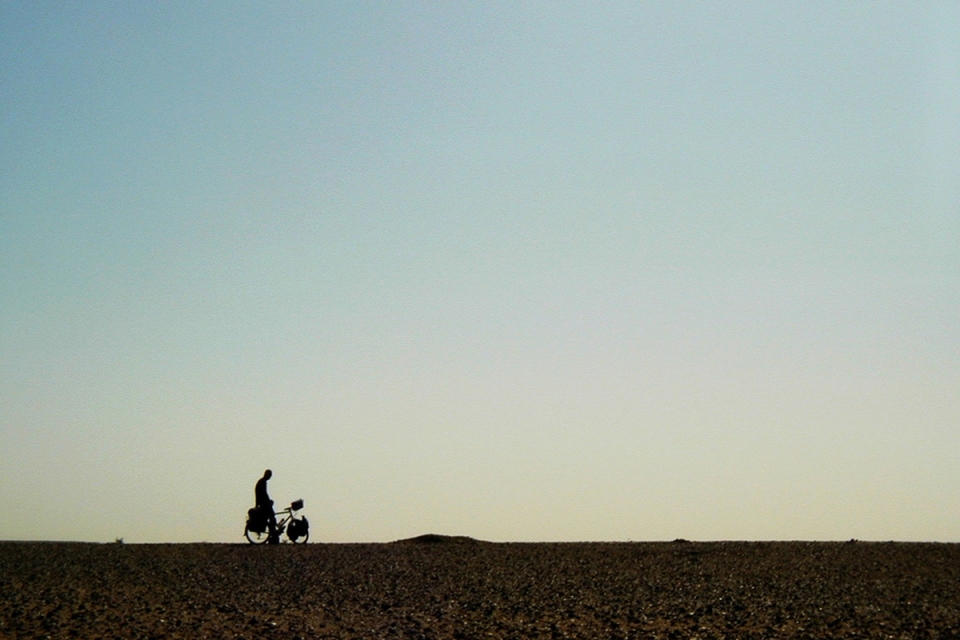
Why Exploring Matters
In the years since my first big expedition I have certainly learned a lot about every aspect of adventure.
I am still learning. Whatever it is that you want to do in life, you will be a beginner at it when you begin. Expeditions are a chance to learn, about the world, about ourselves, about whatever our passions might be. Expeditions are a chance to live harder and more vividly than the real world often permits, escaping from the constraints and conventions of normal life and getting out into wild environments where your success depends on you (and your companions).
There are many different interpretations of expeditions and travel and adventure. Expeditions might be about discovering new places, furthering discovery in science, geography or anthropology. It might be about personal challenge: pushing your limits whether physical, mental, or creative story telling ones. It’s up to you.
A few words of caution, however. If you were a young person starting out in business you would not immediately become CEO of a FTSE 100 Company. If you wanted to be a musician you would start out playing in pubs, honing your craft and building your audience. Expeditions should not be any different. The crucial thing is only to begin. To get started with an expedition that excites you, challenges you, feels worthwhile and significant to you.
Dream big, of course, but start small.
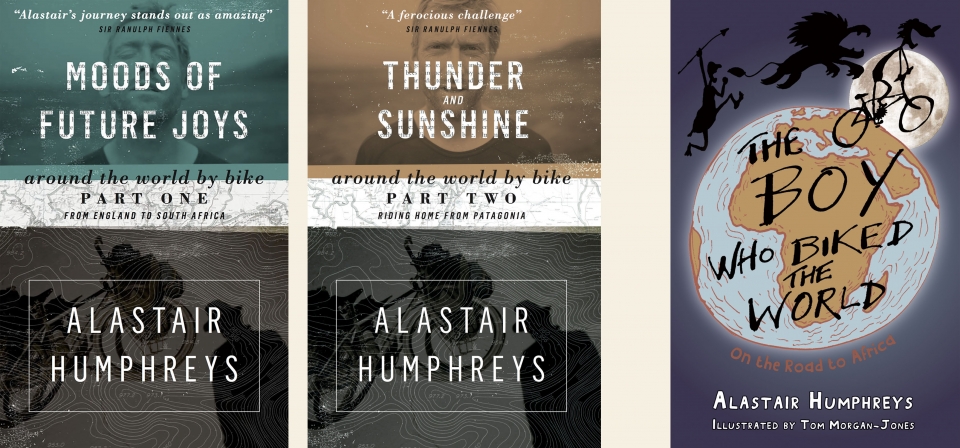
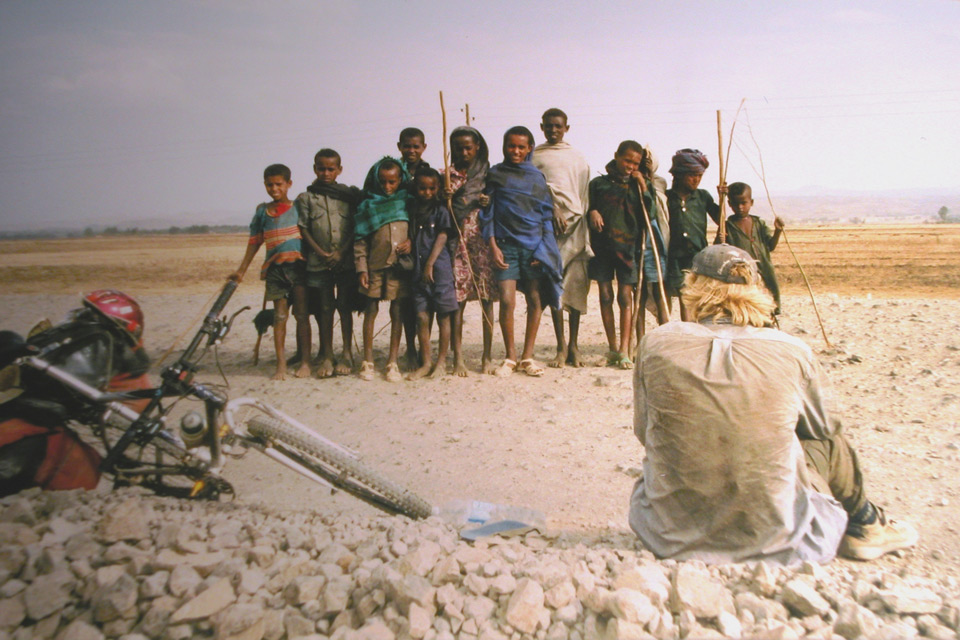
Five Things I Wish I Had Done Since
1. Travelled more slowly
2. Kept more decisions in my own control
3. Written fewer blog posts and more books (and all that metaphor implies)
4. Filmed more
5. Discussed things more with my peers (a.k.a. Stayed later at the bar)
How I Plan My Next Adventure
1. Block off the biggest chunk of time possible. Guard this jealously. Time is so precious and demands on it so numerous.
2. Sit and daydream. Think of all the places I have not been. Pore over an atlas as I pour the coffee. Browse my bookshelves for inspiration.
3. Draw up a shortlist of the few plans that currently excite me most and then narrow this list down against criteria such as cost, season, timeframe and potential partners available.
4. Faff around for a while.
5. Send out an email / meet up with somebody / do something that tips me over from daydreaming about how fun this would all be to actually getting off my arse and making it happen.
6. Buy a plane ticket or whatever is the single most expensive, painful, committing action to take. This is without doubt the most significant and difficult stage of the entire process. This single act of commitment is what differentiates dreamers from doers. It’s not hard, but it is bold. Because I am committed to the trip, I know that it will happen.
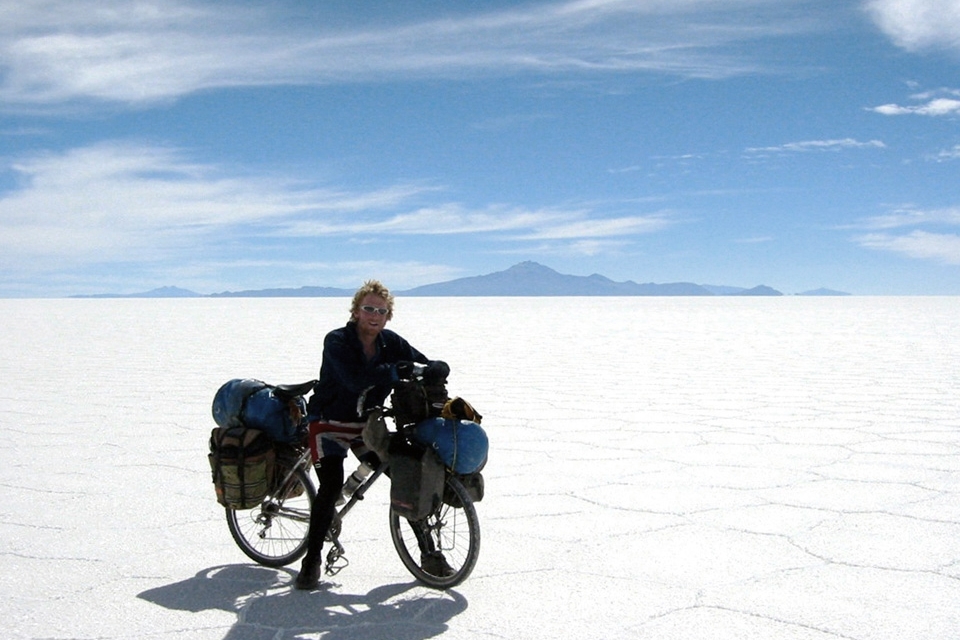
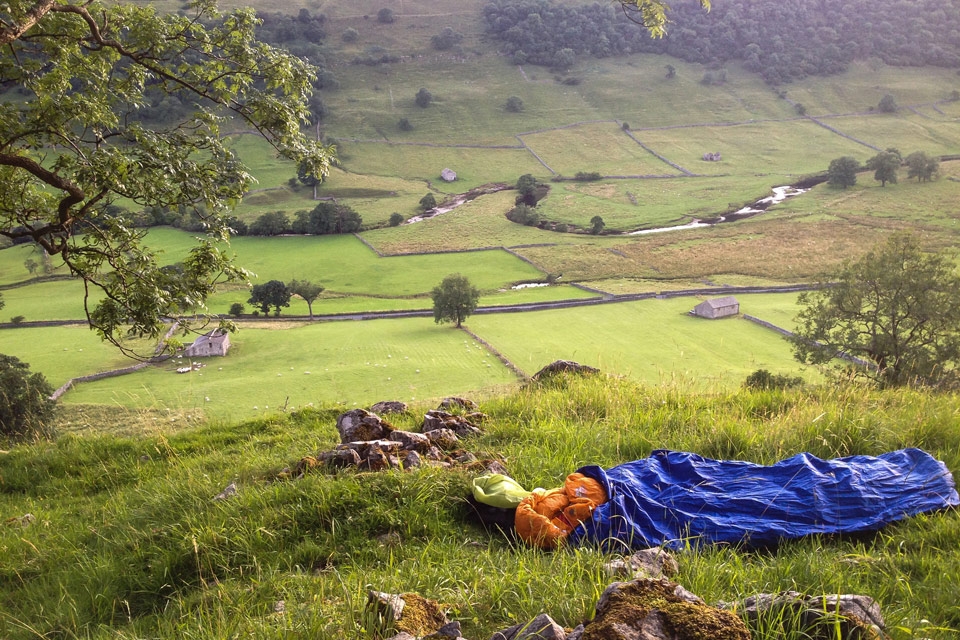
I have never looked back at a trip and regretted how much it cost. I have often looked back and regretted not taking a trip. If you want to do something and it feels important, find a way to pay for it. Make it happen. Or do it cheap and embrace the ensuing hassle and suffering.
